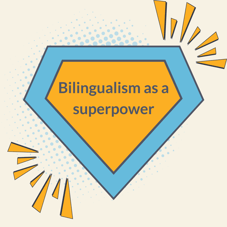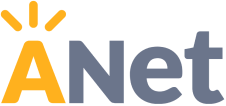 To celebrate National Bilingual/Multilingual Learner Advocacy Month, we sat down with ANet’s resident expert, Dr. Ayanna Cooper Director of Multilingual Learners / English Learners, to talk about what we can do to better serve our linguistically diverse students. This is part of a five-part series with Dr. Cooper throughout April.
To celebrate National Bilingual/Multilingual Learner Advocacy Month, we sat down with ANet’s resident expert, Dr. Ayanna Cooper Director of Multilingual Learners / English Learners, to talk about what we can do to better serve our linguistically diverse students. This is part of a five-part series with Dr. Cooper throughout April.
What gaps do you see in how educators support multilingual learners?
 That’s an interesting question. I’ll frame my response by first highlighting areas where the field has made notable progress. Acknowledging and celebrating linguistic diversity has been fascinating. For our U.S. Secretary of Education, Dr. Miguel Cardona to champion bilingualism as a superpower is huge (Cooper, 2024)! This is part of the U.S. Dept of Education Office of English Language Acquisition (OELA) "Raise the Bar: Lead the World" initiative. It’s also important to have more awareness of bilingual and dual language programs, nationwide, so we know what’s possible and for whom. We must continue our efforts for equitable access so that more students can have the opportunity to be part of bilingual learning communities (Conor et al., 2023).
That’s an interesting question. I’ll frame my response by first highlighting areas where the field has made notable progress. Acknowledging and celebrating linguistic diversity has been fascinating. For our U.S. Secretary of Education, Dr. Miguel Cardona to champion bilingualism as a superpower is huge (Cooper, 2024)! This is part of the U.S. Dept of Education Office of English Language Acquisition (OELA) "Raise the Bar: Lead the World" initiative. It’s also important to have more awareness of bilingual and dual language programs, nationwide, so we know what’s possible and for whom. We must continue our efforts for equitable access so that more students can have the opportunity to be part of bilingual learning communities (Conor et al., 2023).
The gaps I’ve experienced most often in providing technical assistance to partners are;
1) non or limited use of language data
2) shallow knowledge of federal, state and district obligations
3) too much time learning vs. doing
These gaps have been especially challenging since the pandemic. These are the areas in need that may not be any different than other aspects of the field, but for MLs, these gaps can be further exacerbated. For example with #1, during a recent conversation I had with a teacher she communicated to me her interest in wanting to learn more about English language proficiency data analysis. I had just completed a presentation where I was showing slides that helped facilitate learning and application using language data. She hadn’t previously been afforded time to learn and apply that knowledge. Sure, she’s expected to differentiate instruction and provide all of the necessary scaffolds for her students but without data, she still has gaps in her ability to do what's best for students. Where does this teacher and teachers like her go for help?
Another example related to #2 is assessing and understanding more about one's depth of knowledge regarding serving MLs. Most educators come with some experience having taught MLs, perhaps having studied a foreign language or being multilingual themselves. These experiences are undoubtedly beneficial, but do they fully prepare someone for all that PreK-12 ML advocacy efforts entail? I’ve created a survey where over 300 educators have answered a series of questions to self-assess their level of knowledge. I refer to the survey questions as being simple questions with complex answers (Cooper, 2023). Some of those questions are;
- What are the intended outcomes for MLs?
- What is the data telling us or not?
- Is what is being offered working for students?
- How is English language proficiency/performance data being utilized?
- Are students part of data analysis and related discussions? If not, how come?
The first question is probably the most challenging to answer since it depends on who you ask. What surfaces here is the need to agree on what those intended outcomes are. Without agreement, there will be very little, if any, coherence regardless of the amount of time spent planning. Most educators are overextended and under-resourced. As a result, time for learning, planning, and applying what’s been learned is limited. This leads to surface-level learning with patchy application efforts. Plans are often short-term and lack reflection and periodic checks that can help ensure the plan in place is for sure the plan that yields the highest outcomes for students.
These gaps affirm the importance of having a data before differentiation approach so that our efforts will be more intentional, student-centered, and long-term.
What types of responses to the aforementioned questions would you expect if you were to ask educators in your learning community? How might you use the responses to strategize an approach for ML support?
Fill out the form to ask any questions about ML/EL students.
Resources
Cardona, M. (2023, November) Secretary Cardona Touts Multilingual Education in Being Bilingual Is A Superpower Initiative Launch Event. Ed.Gov. Retrieved from https://www.ed.gov/news/speeches/secretary-cardona-touts-multilingual-education-being-bilingual-superpower-initiative-launch-event
Cooper, A. (2024, February). The pace of progress. Language Magazine, 23(6), 30–32
Cooper, A. (2023, July). Making (Language) Data CUTE: Comprehensible, Useable, Timely and Empowering Part I. Language Magazine, 22(11), 35 - 37
Williams, C., Meek, S., Marcus, M., & Zabala, J. (2023, May). Ensuring Equitable Access to Dual-Language Immersion Programs: Supporting English Learners’ Emerging Bilingualism. The Century Foundation
